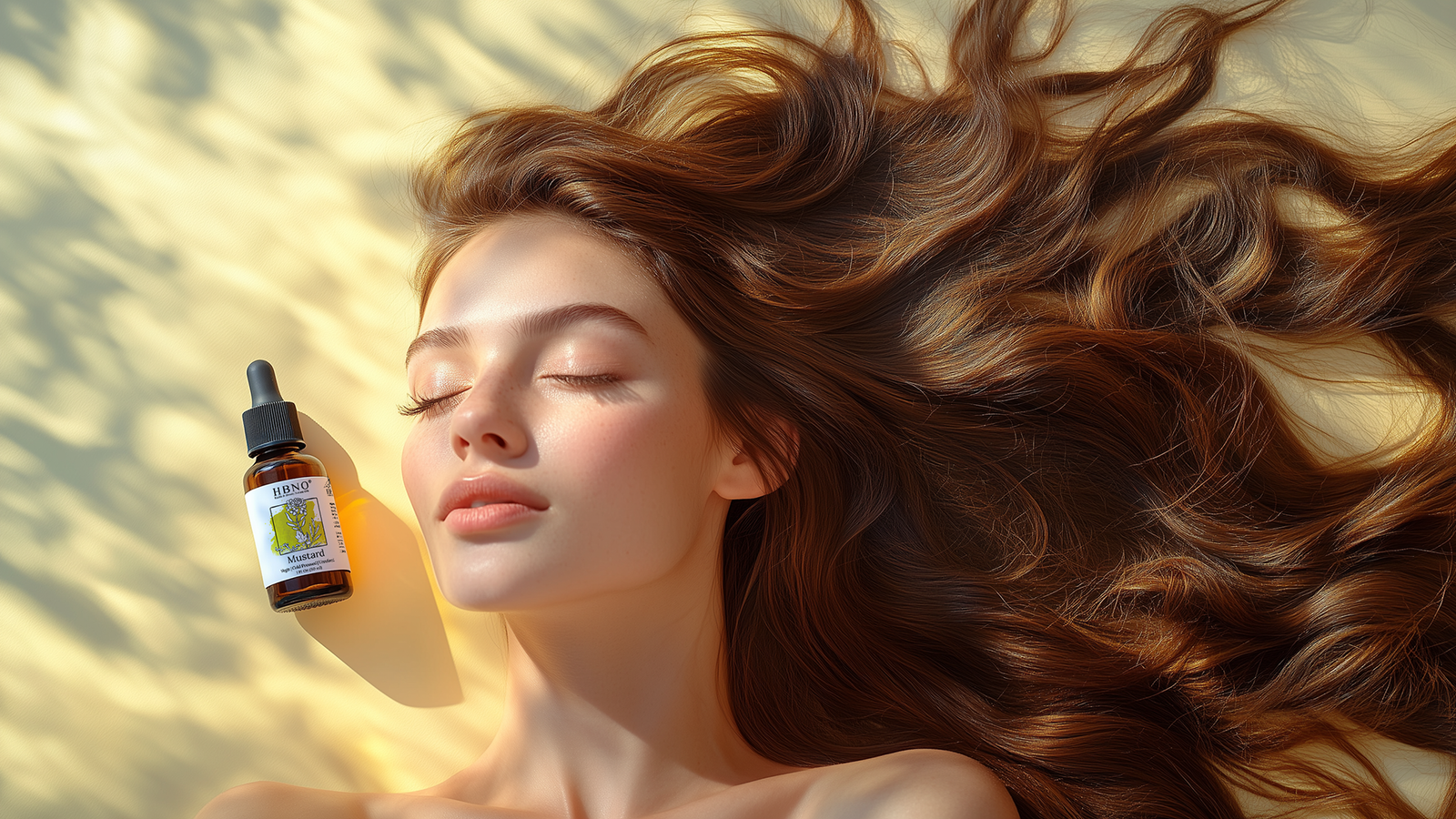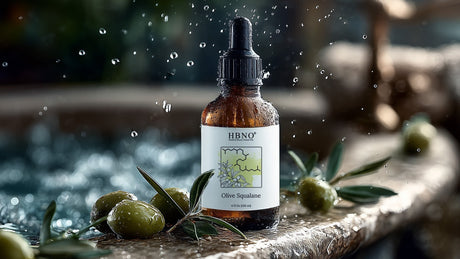Mustard seed oil, extracted from the seeds of the mustard plant, has been used for centuries in cooking, traditional medicine, and beauty rituals. Renowned for its pungent aroma, warming properties, and beneficial compounds, it's a staple in South Asian households and gaining popularity worldwide. However, like any natural product, mustard seed oil isn't without its drawbacks. In this comprehensive exploration, we'll dive into the potential side effects of mustard seed oil on hair, skin, and overall health. This article will also discuss the different types of mustard seed oils available, including Mustard Seed Carrier Oil, Organic Mustard Seed Carrier Oil, and concentrated Mustard Seed Oil, to help you make informed decisions about their usage.
Understanding Mustard Seed Oil: Types and Properties
Mustard seed oil is derived from mustard seeds using cold pressing or distillation. Its composition varies slightly depending on the type and method of extraction, but it's generally rich in monounsaturated fats, polyunsaturated fats, omega-3 fatty acids, and compounds like allyl isothiocyanate and erucic acid. Let's look at the common types of mustard seed oil:
-
Mustard Seed Carrier Oil: A milder version of mustard oil, often cold-pressed and ideal for topical applications. It's popular in aromatherapy and massage for its warming and soothing effects.
-
Organic Mustard Seed Carrier Oil: Sourced from organically grown mustard seeds, this oil is free from pesticides and chemicals, making it a preferred choice for those seeking natural skincare solutions.
-
Mustard Seed Oil: This refers to both edible and essential oil forms. The essential oil version is highly concentrated and primarily used for therapeutic and external purposes.
While mustard seed oils offer numerous benefits, their chemical composition can sometimes lead to adverse effects on hair, skin, and health if used improperly.
Side Effects of Mustard Oil on Hair
Mustard seed oil is often touted as a miracle elixir for hair health, promoting growth, reducing dandruff, and adding shine. However, there are instances where its usage can backfire. Here are some potential side effects:
1. Scalp Irritation
The active compounds in mustard oil, such as allyl isothiocyanate, can cause scalp irritation in sensitive individuals. This may result in redness, itching, and a burning sensation. People with a sensitive scalp or pre-existing conditions like psoriasis should be cautious.
2. Allergic Reactions
Mustard oil is a known allergen for some. Allergic reactions can manifest as rashes, hives, or swelling on the scalp. A patch test is highly recommended before applying mustard seed carrier oil or organic mustard seed carrier oil.
3. Follicle Blockage
The thick consistency of mustard oil can clog hair follicles if not washed out thoroughly. This may lead to folliculitis, a condition where hair follicles become inflamed and irritated.
4. Hair Breakage Due to Overuse
Excessive use of mustard seed oil can weigh down hair, making it brittle over time. This is particularly true for fine or oily hair types, where the heaviness of the oil can lead to breakage.
5. Residual Greasiness
Mustard oil's heavy nature often leaves a greasy residue on hair and scalp. Improper rinsing can cause buildup, making hair look dull and unclean. Multiple washes may be required, which can strip the scalp of its natural oils and cause dryness.

Side Effects of Mustard Oil on Skin
Mustard seed carrier oil and its organic counterparts are frequently used in skincare for massages, moisturization, and even as a remedy for dry or flaky skin. However, not everyone's skin reacts positively to mustard oil. Below are some of the common side effects:
1. Allergic Reactions
Skin allergies to mustard oil are relatively common. Symptoms include redness, itching, and rashes. In severe cases, blisters or swelling can occur. This is primarily due to the presence of compounds like allyl isothiocyanate.
2. Skin Damage from Overuse
Prolonged application of mustard oil can disrupt the skin's natural barrier. This may lead to increased water loss and leave the skin dry and irritated. Over time, it can also result in uneven skin tone.
3. Acne Breakouts
Mustard oil is comedogenic, meaning it can clog pores and lead to acne breakouts, especially for individuals with oily or acne-prone skin. Using it sparingly and in diluted forms can help mitigate this issue.
4. Photosensitivity
Applying mustard oil to the skin and exposing it to sunlight can increase the risk of photosensitivity. This can cause pigmentation, redness, and even sunburn in severe cases.
5. Risk of Dermatitis
Continuous use of mustard seed carrier oil, particularly without dilution, may lead to dermatitis-an inflammation of the skin characterized by swelling, redness, and pain.
Systemic Health Side Effects of Mustard Oil
The side effects of mustard oil aren't limited to hair and skin; its consumption and prolonged external use can affect overall health. Below are some systemic concerns:
1. High Erucic Acid Content
One of the most debated aspects of mustard oil is its erucic acid content. While small amounts are generally safe, excessive intake has been linked to myocardial lipidosis, a condition characterized by fat accumulation in heart muscles. This raises concerns about its cardiovascular safety.
2. Digestive Distress
Consumption of mustard oil in large quantities can irritate the digestive system, leading to discomfort, diarrhea, or even ulcers in extreme cases. The pungent compounds in mustard oil are the primary culprits.
3. Respiratory Issues
The strong aroma of mustard oil can trigger respiratory problems, particularly in individuals with asthma or other chronic respiratory conditions. Prolonged inhalation during massage or cooking can lead to breathlessness.
4. Neurological Effects
In rare cases, overexposure to mustard oil's compounds has been associated with neurotoxicity, affecting the central nervous system and leading to symptoms like dizziness or headaches.
5. Risk During Pregnancy
Pregnant women are often advised to avoid mustard oil due to its potential to cause uterine contractions. Additionally, the oil's strong aroma can lead to nausea or discomfort.

Best Practices for Safe Usage
Despite its potential side effects, mustard seed oil remains a versatile and valuable product when used correctly. Here are some tips to maximize its benefits while minimizing risks:
1. Perform a Patch Test
Before using mustard oil on your skin or scalp, apply a small amount to your forearm and wait 24 hours to check for any adverse reactions.
2. Use Diluted Forms
To reduce the risk of irritation, dilute mustard seed carrier oil with a milder oil like coconut or almond oil. This is especially important for sensitive skin or scalp.
3. Limit Exposure Time
When applying mustard oil to your hair or skin, avoid leaving it on for extended periods. Rinse it off thoroughly within an hour to prevent buildup or irritation.
4. Choose Organic Options
Opt for Organic Mustard Seed Carrier Oil for skincare and haircare. Organic oils are less likely to contain harmful chemicals or pesticides, reducing the risk of adverse effects.
5. Avoid Direct Sunlight After Application
If you've applied mustard oil to your skin, stay out of direct sunlight to prevent photosensitivity and pigmentation issues.
6. Consult a Professional
If you have pre-existing health conditions or are pregnant, consult a dermatologist or healthcare provider before incorporating mustard oil into your routine.
Balancing Benefits and Risks
It's undeniable that mustard seed oil, including its carrier and organic variations, offers a wealth of benefits for hair, skin, and health. However, its potent nature means it must be used with care and consideration. Understanding your skin and hair type, conducting patch tests, and following proper application methods can help you enjoy its advantages while steering clear of potential pitfalls.
At HBNO, we prioritize quality and safety in our range of oils, including Mustard Seed Carrier Oil and Organic Mustard Seed Carrier Oil. By sourcing the finest ingredients and adhering to strict quality standards, we ensure that our products provide maximum benefits with minimal risks.
Conclusion
Mustard oil's rich history and versatile applications make it a popular choice in the beauty and wellness world. However, as with any natural product, it's essential to understand its potential side effects to use it effectively and safely. Whether you're exploring Mustard Seed Carrier Oil for hair care, Organic Mustard Seed Carrier Oil for massages, or concentrated Mustard Seed Oil for therapeutic purposes, always prioritize informed usage.
By acknowledging the risks and adopting safe practices, you can harness the benefits of mustard oil while maintaining healthy hair, skin, and overall well-being. For high-quality mustard seed oils, trust HBNO-your partner in natural beauty and health.
Grow your business with a strategic Private Label Partner committed to brand success and innovation.




